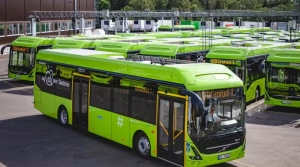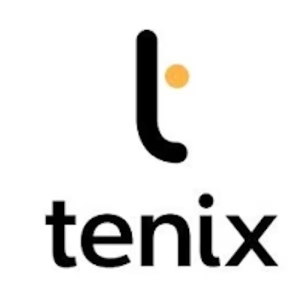Another year has come and gone, and while a significant amount happened within the transport industry in 2023, the coming years could be even more eventful. They might even some of the biggest years of transformation that the transport industry has seen so far.
As we speed towards Fit for 55, infrastructure and vehicles will be changing before our eyes. And with AI exploding in 2023, we can expect to see exciting progress in this area too.
This article will explore what we can anticipate this year, with some additional predictions from the Tenix team.
Fit for 55
In 2021, the EU established the Fit for 55 scheme to reduce carbon emissions by 55% before 2030. With 2030 only 6 years away now, the transport industry is well on its way to achieving the goals.
From 2025, heavy-duty vehicle recharging stations with at least 350 kW output must be installed every 60 km on the TEN-T core network, and every 100 km on the broader TEN-T comprehensive network.
With 2025 just one year away, activity will likely be ramping up this year.
It’s a well-known fact that infrastructure is vital for the success of electric vehicles, so by starting in 2024, these main road networks should be covered in time for 2030.
“I think we will start seeing a lot more infrastructure along motorways ahead of ‘Fit for 55’.
I believe this will move quickly, since the transition to electricity is happening at an unprecedented rate, and the demand is already there in some parts of Europe.”
Road Tolls
Infrastructure isn’t the only thing changing on European roads this coming year. As of December 2023, Germany increased the cost of their road tolls. This means that in 2024, vehicles that produce emissions must pay steep tolls to drive on the roads. This road toll increase, which includes a new CO₂ toll of 200 euros per tonne, could lead to a 70-80% increase in charges for transport companies.
“I believe the increase in tolls in Germany could be the first of many. The transition to electric or alternative fuels is more appealing when the alternative is steep toll costs. The tolls create a strong incentive to switch to vehicles that won’t incur these fines. Maybe even more countries will follow suit.”
Elections and Olympics
The Fit for 55 goals are a priority for European transport companies and governments alike, evident from recent activities. And as a number of European countries (as well as the US and UK) go to the election polls this year, sustainability will be a key focus. Additionally, the summer Olympics in Paris will further spotlight sustainability amidst the election-driven conversations.
The 2024 Olympics are aiming to be more sustainable, with the goal of cutting carbon emissions in half.
One way that they are doing this is by relying heavily on public transport. Predictions suggest a 15% increase in Paris’s public transport use, on top of the existing 9 million daily journeys. Additionally, the extra 1000 coaches provided for athletes will emphasize the importance of coaches and collective transportation in everyday life.
“This year, with the Olympics and the elections, the focus will be on sustainability, and how we can cut carbon emissions even more. The Olympics will hopefully showcase the effectiveness and importance of public and collective transport when it comes to reducing emissions, and efficiently transporting people to where they need to go.“
Smart Tachograph version 2
From August 2023, all new HGVs and buses were required to use the new smart tachograph version 2. Existing HGVs and buses must also adopt the new tachograph by August 2025. This means that throughout 2024, more and more HGVs and buses will be transitioning to this more advanced smart tachograph.
2024 Problem
Thousands of kilometers away from Europe, Japanese truck drivers are facing significant changes to their working hours. The ‘2024 problem‘ refers to the new overtime cap that the government has introduced as part of its work reforms. Truck drivers, on average, work more hours than any other profession in Japan, despite on average earning less money. The new overtime cap raises fears about pay reductions, attracting young new drivers, and potential disruptions to delivery services.
In response to the backlash from the drivers, the Japanese government has proposed incremental changes to help the transition, such as urging shippers to pay trucking companies fair fees and create more efficient processes to reduce time spent on unloading and loading cargo. But, despite the backlash, the transport ministry is standing firm on their decision.
“I think the ongoing bus driver shortage, and the 2024 problem in Japan will see drivers become louder about their demands. For a long time drivers have been somewhat back of mind, but after the pandemic, it’s become clearer for a lot of people how vital drivers are to society.“
AI Boom
With the release of Chat GPT in late 2022, the world has seen enormous growth in the capabilities of AI. With the realisation that AI is already more advanced than many expected, almost every industry has been racing to find ways to make their work processes more efficient. The transport industry is no exception.
At Tenix, our automated smart charging optimization feature is transforming the way bus companies are planning and charging their electric vehicles. HGV companies are also realising how valuable AI can be, using it for such things as reducing empty cargo space, improving efficiency, streamlining supply chain management, improving fuel efficiency, predictive capacity planning and many more things.
While 2023 saw the take off of AI, 2024 will likely see solutions being improved, and increased use of the available solutions across both HGV companies and bus companies.
In conclusion
This list could go on. In many ways, the transport industry is transforming in front of our eyes. AI is simplifying processes, vehicles and road infrastructures are becoming more environmentally friendly, and drivers worldwide are raising their voices. These are exciting times for transportation, and as we approach 2030, things are likely to get even more exciting.


